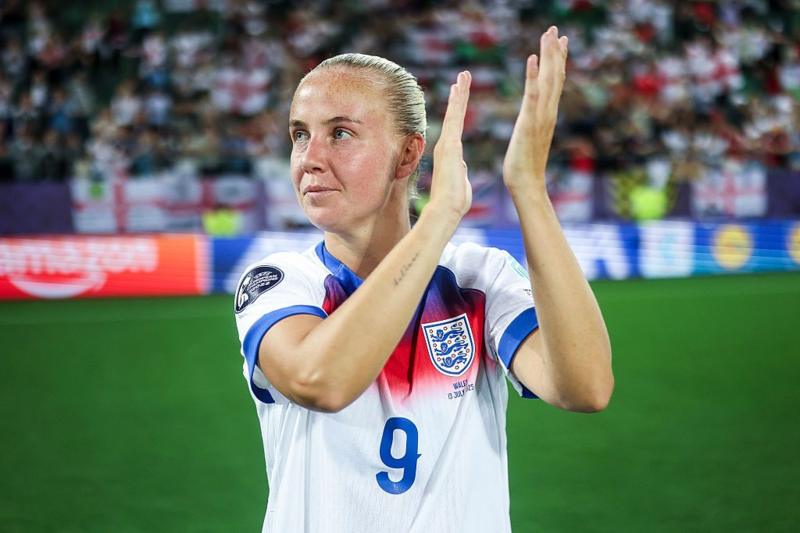Golden Boot Winner Mead Discusses Dramatic Role Shift for England




When Beth Mead took to the field in UEFA Women's Euro 2022, her bursts of brilliance were not just pivotal for England's Lionesses, they were transformative for her career. Scoring goals, providing assists, and being named Player of the Tournament, Mead's performance was nothing short of spectacular, helping to lead her team to a historic victory. However, as we approach Euro 2025, Mead's role within the team has evolved dramatically, presaging a new chapter both for her and for the England squad as a whole.
Beth Mead's journey from the grassroots to the apex of European women’s football is a testament to her hard work, adaptability, and unyielding passion for the game. Born and raised in Whitby, she commenced her career with local team Middlesbrough before moving to Sunderland, where her exceptional talents began to shine on a larger stage. Her move to Arsenal in 2017 was a significant leap that offered her a chance to hone her skills further, playing against top-tier talent in domestic competitions as well as the Champions League.
Fast forward to Euro 2022, Mead was a formidable force, contributing significantly to England's scoring tally and establishing herself as a star on the international stage. Yet, sports careers are often subject to rapid changes—whether due to tactical shifts, team dynamics, or personal development—and Mead’s situation is no exception. As Euro 2025 approaches, she finds herself adapting to a different, yet equally crucial, role under the guidance of coach Sarina Wiegman.
In this new role, Mead has transitioned from being primarily a goal-scoring forward to taking on responsibilities that underscore her maturity and understanding of the game. This includes mentoring younger players and helping to implement Wiegman’s strategic visions, demonstrating her versatility and team-first attitude. Some may see this as a step back from the limelight, but in reality, it highlights her growth as a player capable of contributing both on and off the field.
Mead's change in responsibilities also reflects broader trends in football, where versatility and adaptability are increasingly prized. Players are often expected to be more complete, understanding not only their roles but also those of their teammates and how various elements of play integrate strategically across the pitch. By embracing a role that might offer fewer headlines but is vital for team cohesion and execution, Mead exemplifies what modern footballers can aspire to.
Moreover, her new role might offer insights into the longevity of a football career. Forward players typically peak earlier, and as they progress, altering their style of play and taking on new roles can prolong their careers while maintaining their importance to the team. Mead’s adaptation could very well be a blueprint for future professionals, showcasing how evolving within a team context can lead to sustained success and relevance in high-level football.
This evolution also points to a shift in how women’s football is discussed and analyzed. With increasing media coverage and growing fan bases, there's a greater appreciation for the tactical nuances and varied contributions players make beyond just scoring goals. Analysts and fans alike are recognizing the complexity of roles like Mead's, where leadership and tactical acumen are celebrated as much as athletic prowess.
As Euro 2025 draws near, all eyes will be on Mead and the England team, not just for their past triumphs but for how they continue to redefine roles and expectations in women's football. Whether she’s making crucial plays or guiding newer talents, Beth Mead’s influence on the pitch and within her team is undeniable, proving that sometimes, changing roles can lead to the most impactful performances.